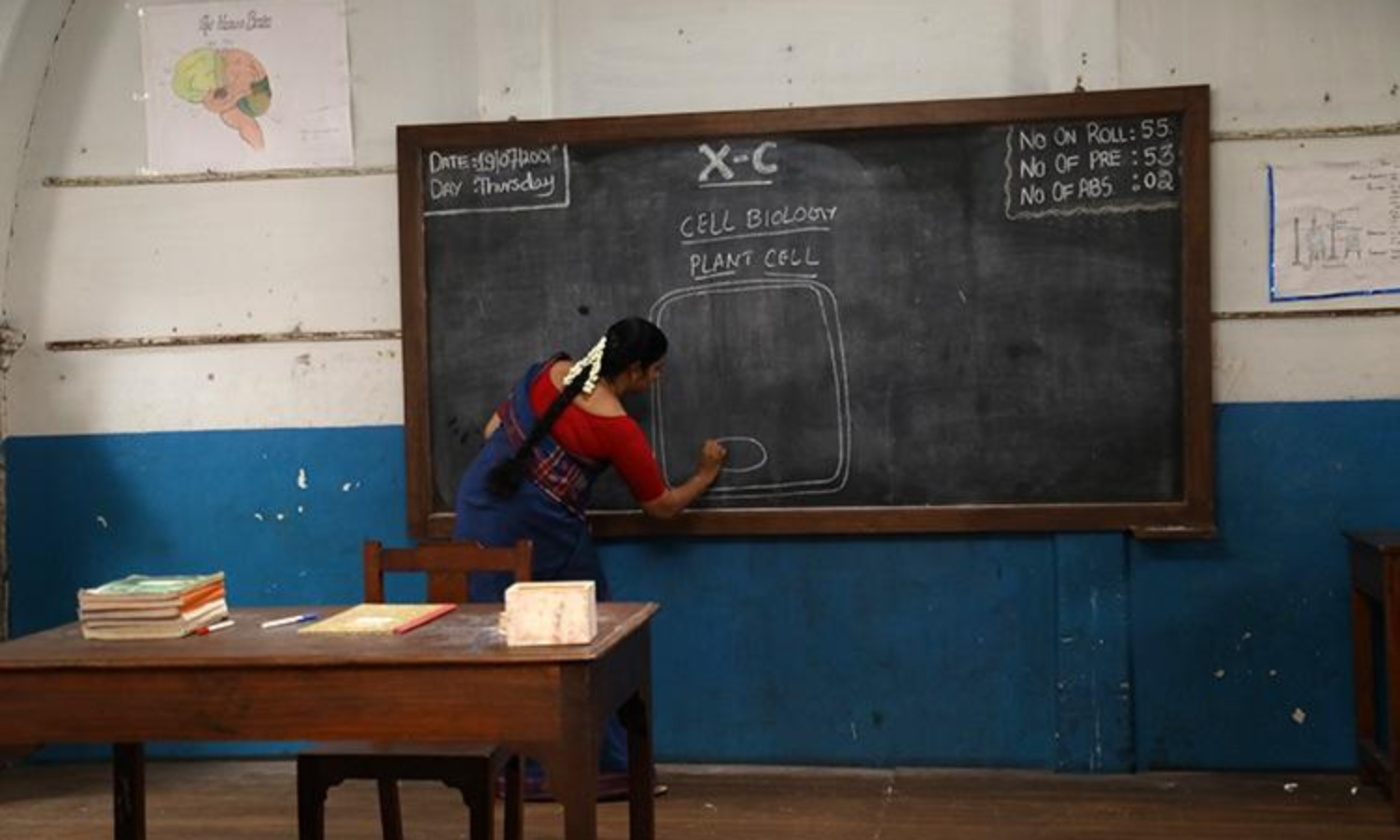The school is an eminent pillar of education, imparting all the necessary tenets of a culture. It becomes a microcosm of a community and mimics prejudices and biases. The sexualisation of bodies (especially female bodies) seeps into the boundaries of schools and creates an environment of objectification and harassment.
Rani Joseph, a higher secondary English teacher from Kerala recently suffered discrimination in this context and decided to fight against it. She joined the Little Flower Public School in Kollamula, Pathanamthitta in May. The school had introduced a dress code for all female teachers where they were expected to wear coats over their saree or suit.
The dress code, exclusively issued for all female teachers is believed to have been brought to practice to save the teachers from sexual glances and comments by students. The idea is that by covering their bodies teachers would escape the insulting comments and gaze of students.

When Rani protested and suggested that the students be given sex education rather than covering the female teachers up, she was subjected to harassment by the principal of the school. He would call her out in the public, even before her students, and remind her to wear appropriate clothes to school. She remembers him making her feel like she was wearing something “vulgar”.
The policing of women’s clothes is not a new idea but this idea being perpetuated in educational institutes threatens the very structure we fight to change. A teacher is a gender-neutral, authoritative individual, but the scales of power shift when the individual in question is a woman. The students start viewing her as an object and the basics of power crumble. She is commented on and made to feel reduced to an object.
Many educational institutes in India have codes of conduct for women. They must wear either saree or suit, the saree’s blouse must be of a certain length and well-tucked. In the case of the Kerala school, to avoid any unbecoming glances, the teachers are to cover themselves completely. Schools have become a way of accomplishing what the liberal society broke free from. In the guise of employment, they aim to efface a woman’s sexuality and reduce her to an object
Also read: Why Does The Word ‘Teacher’ Evoke A Female Figure By Default
Teachers on display: Sexualisation, gaze, and harassment
In patriarchy, every role that a woman plays is associated with a cultural image; a ‘good’ woman, a ‘good’ mother, a ‘good’ daughter, a ‘good’ teacher, etc. A good teacher would be a saree-clad, polite, always-smiling woman, who looks benevolent and is willing to sacrifice her time for a meager remuneration.
A teacher is a neutral embodiment who works in a public place. Her/his body is on display all the time and becomes vulnerable to judgment. This judgment becomes narrow when it comes to women. The length of her saree, the transparency of her suit, and the crevices of her clothes are judged as indications of her character.
Comments are passed when she decides to own herself rather than give in to societal expectations. A teacher’s drawing in our school books is our parameter for measuring her. She needs to look a certain way to do her job appropriately. She is coerced to mute all her sexuality to save herself from the brunt of sexualisation.

Many educational institutes in India have codes of conduct for women. They must wear either saree or suit, the saree’s blouse must be of a certain length and well-tucked. In the case of the Kerala school, to avoid any unbecoming glances, the teachers are to cover themselves completely.
This culture of body shaming and policing ultimately blames the victim. Victim shaming is so prevalent in the dungeons of educational institutes that it encourages men to victimise women. The teachers and students agree to the power-gender dynamics in the sense that passing lewd comments become acceptable. If a case is ever made, it is designed to question the styling choices of women
Schools have become spaces for accomplishing what the liberal society broke free from. In the guise of employment, they aim to efface a woman’s sexuality and reduce her to an object.
Only a handful of teachers realise the distinction between sexuality and sexual harassment. While most have suffered insults and comments in their tenure, they fail to report it. They seldom realise that sexual glances are a case of sexual harassment. Since it mostly goes unreported, it continues to grow and censor the agency of women.

This culture of body shaming and policing ultimately blames the victim. Victim shaming is so prevalent in the dungeons of educational institutes that it encourages men to victimise women. The teachers and students agree to the power-gender dynamics in the sense that passing lewd comments become acceptable. If a case is ever made, it is designed to question the styling choices of women.
Our educational institutions would be infected with this patriarchal nuance till those in power stand up for women and their choices. These schools police female students and teachers likewise. Rather than asking women to cover their bodies or sit in separate groups from boys, they must teach boys the appropriate way to interact with women.
Maybe then they would stop making lewd comments and consider women as only teachers, and not hypersexualised bodies. Till then, many more Rani Josephs would keep fighting the battle without any support from the school, society, or structure.
Also read: Sexualising & Policing Women—Kerala’s “Blue-Saree Teacher” Case
About the author(s)
Guni Vats is a research scholar at University of Lucknow. A passionate researcher and a curious soul, she aims to shift the 'center', one-word-at-a-time.






